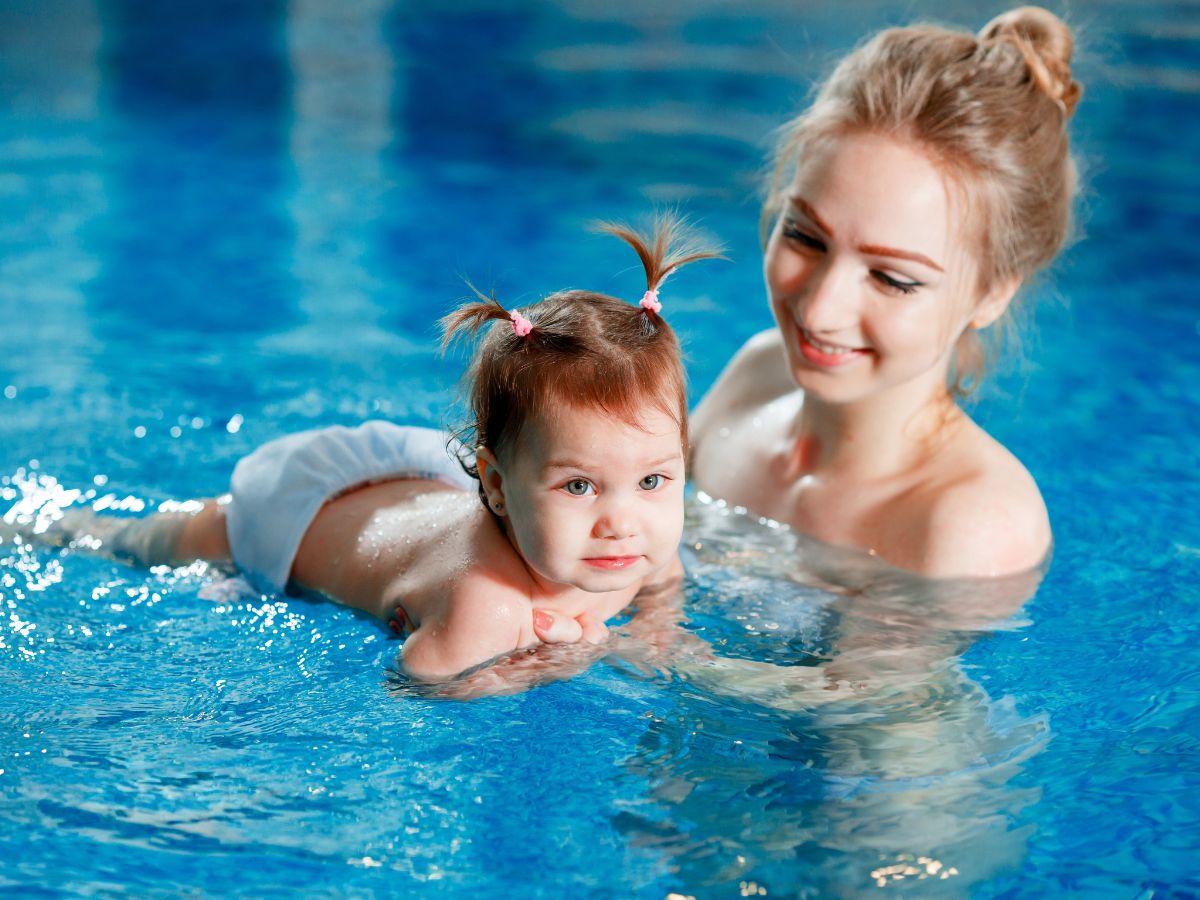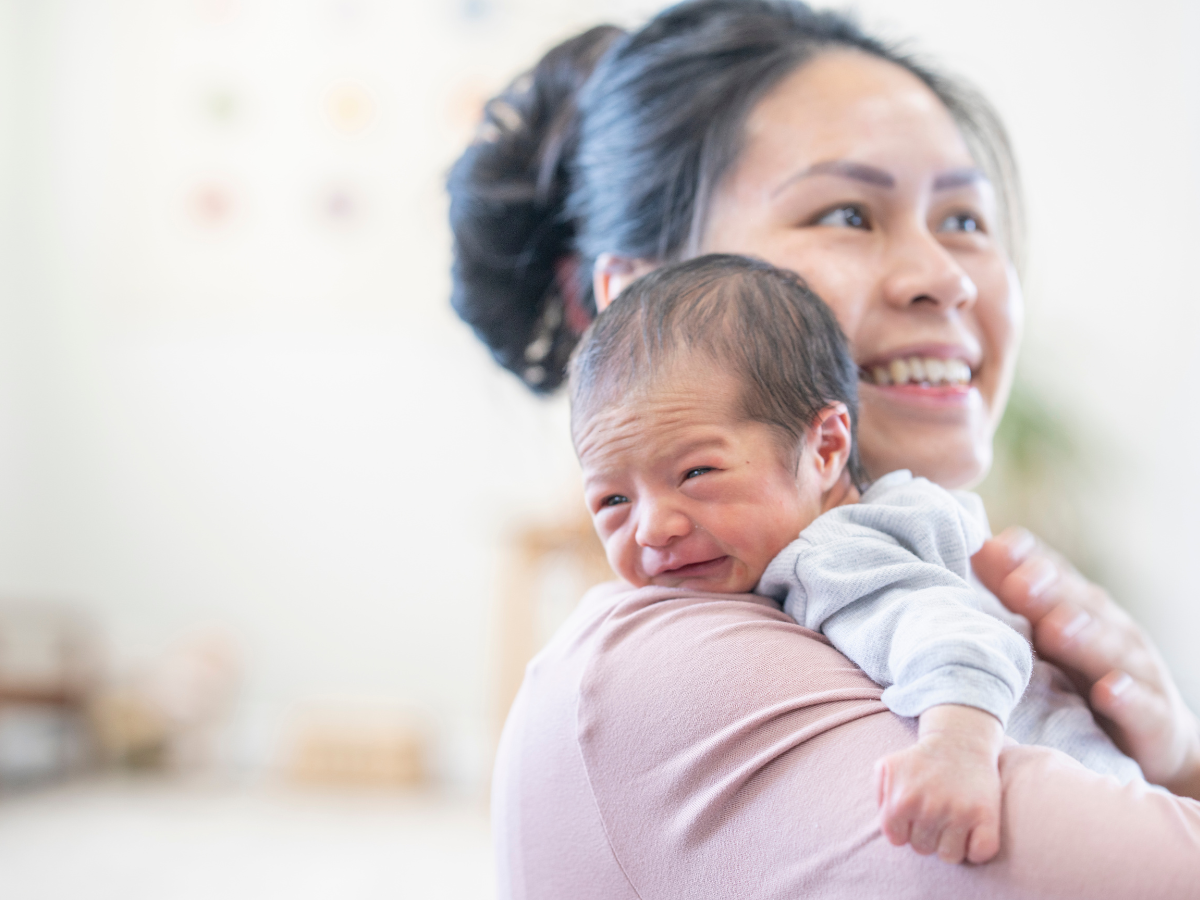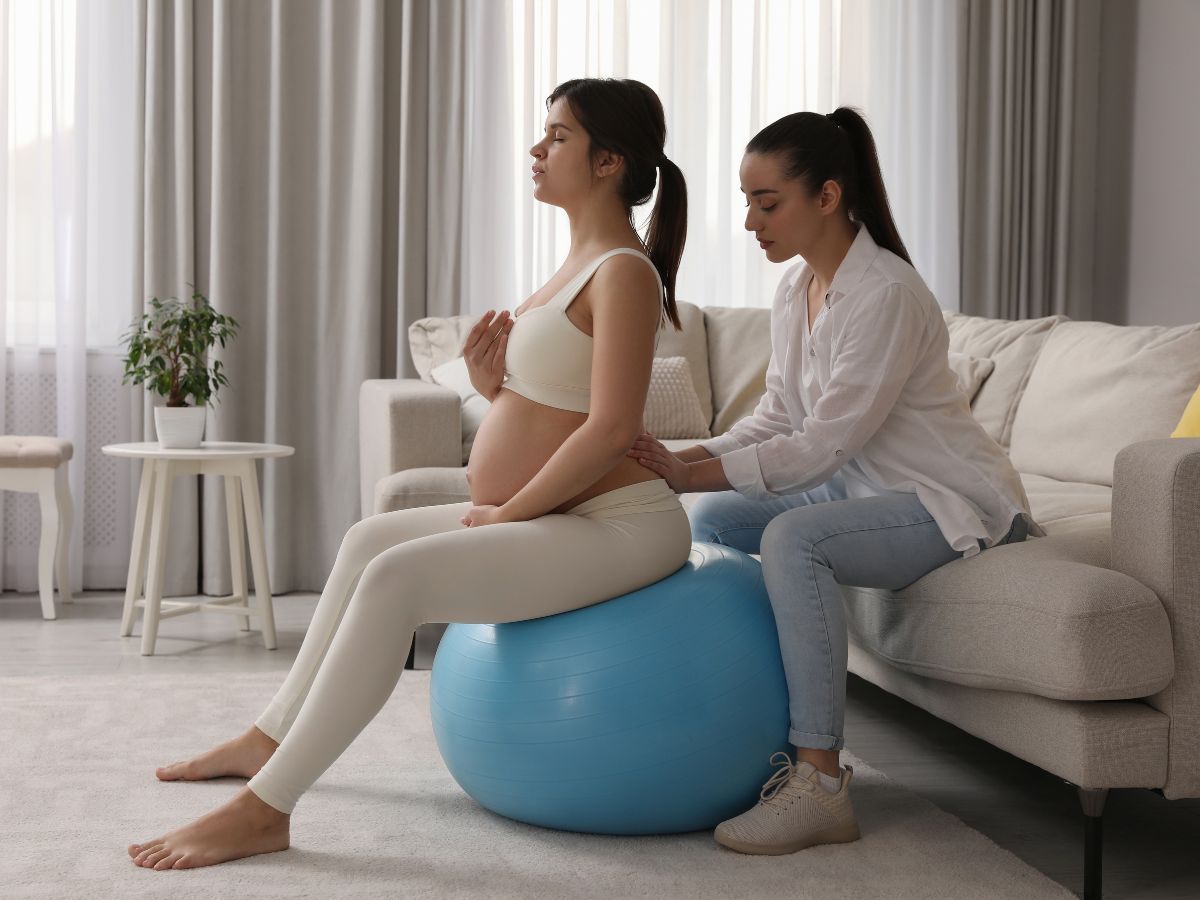With summer in full swing, you're probably excited to cool down at the pool with your little one. But you might be wondering, “When can babies go in the pool?” Ensuring your baby's safety while enjoying some quality pool time together is crucial. There are many factors to consider, from your baby’s age and body temperature regulation to pool hygiene and safety gear. Let’s explore everything you need to know to make your baby's first pool experience safe and enjoyable!
Understanding the Basics: What Experts Say
The American Academy of Pediatrics (AAP) recommends waiting until your baby is at least 6 months old before introducing them to a pool. This guideline helps ensure your baby’s immune system is more developed, reducing the risk of infections. Before their first dip, always consult with your health visitor or pediatrician to ensure your baby is ready.
Key Considerations for Pool Time with Babies
-
Body Temperature and Water Safety: Babies have a harder time regulating their body temperature compared to adults. Ensure the pool water is warm, ideally between 32-34 degrees Celsius (89.6-93.2 degrees Fahrenheit), to keep your baby comfortable. Avoid public pools with cooler temperatures and opt for warm pools or a local pool with regulated heating.
-
Pool Hygiene and Skin Care: Babies have sensitive skin, so it’s crucial to check the chlorine levels and ensure the pool is clean. Look out for any signs of skin irritation after pool time. If your baby has a skin condition or complaints, consult a professional group of doctors before swimming.
-
Safety Gear and Supervision: Touch supervision is essential—always keep your baby within arm’s reach. Use water wings with caution and never rely solely on them. Check their age and weight requirements. For young infants, a personal flotation device, like a life jacket can be useful as well.
-
Swim Diapers and Hygiene: Use swim diapers to avoid any accidents in the pool. Regularly check and change the diaper to maintain pool hygiene and prevent fecal matter contamination.

Tips for a Fun and Safe First Pool Experience
- Start Slow: Introduce your baby to the pool gradually. Begin with short sessions and slowly increase the duration as your baby gets comfortable.
- Sun Protection: Babies’ skin is delicate and can burn easily. Ensure your pool area provides shade, or use protective clothing and baby-safe sunscreen to protect your baby from direct sunlight.
- Choose the Right Time: Opt for quiet time at the pool to avoid crowds and overstimulation. Early mornings or late afternoons can be ideal.
- Engage in Water Play: Use fun activities like gentle splashing and floating toys to make the experience enjoyable. This also helps in developing your baby’s motor skills and natural reflexes.
The Best Way to Ensure Safety and Enjoyment
To make pool time enjoyable and safe, consider joining baby swim classes. These classes are often offered in small groups of parents and focus on water survival skills and swim readiness skills. It’s a great way to bond with your baby and meet other parents in your local area.
Mommy and Me Swim Classes: What to Expect and What They Teach
What to Expect in Mommy and Me Swim Classes
Mommy and Me swim classes are a fantastic way to introduce your young baby to the joys of swimming while ensuring they are baby safe and comfortable. These classes typically cater to babies from as young as a few months of age, offering a supportive environment for both the mother and child. Here’s what you can expect:

1. Small Group Settings: Classes are usually conducted in small groups of parents, allowing for personalized attention and a safe environment. This intimate setting helps reduce the risk of drowning and ensures that each baby receives the necessary support.
2. Warm and Controlled Water Temperature: To keep newborn babies comfortable, the temperature of the water is carefully regulated. Most pools maintain a warm temperature, often around 32-34 degrees Celsius (89.6-93.2 degrees Fahrenheit), ensuring your baby doesn’t get too cold.
3. Safety First: Safety is paramount in these classes. Parents are taught good water safety habits, including how to properly use flotation devices like life jackets. Classes are designed to be a safe introduction to being near water, minimizing drowning risks.
4. Expert Instructors: Instructors are usually trained professionals with a strong background in baby swimming and early childhood development.
5. Focus on Fun and Engagement: Classes incorporate fun activities such as water play, singing, and gentle movements, helping young children become comfortable in the water. This engagement also aids in developing motor skills and natural reflexes.
What They Teach in Mommy and Me Swim Classes

1. Basic Water Skills: These classes introduce babies to the basics of swimming. They learn to kick their legs, move their arms, and float with the support of their parents or instructors. This early exposure helps build a foundation for future swimming skills.
2. Water Safety: Learning good water safety habits is a core component. Parents and babies are taught how to safely enter and exit a pool, the importance of touch supervision, and how to use flotation devices like swimming nappies and life jackets.
3. Comfort and Confidence in Water: The goal is to make babies comfortable and confident in the water. By starting at an early age, typically a few months of age, babies develop a positive association with swimming and water activities.
4. Health and Well-being: Swimming is a gentle exercise that can benefit both mother and baby. It’s especially beneficial for mothers recovering from childbirth, as it promotes gentle physical activity and bonding time without the risk of strain.
5. Social Interaction: Classes provide an opportunity for social interaction, both for the babies and their parents. Babies get to interact with peers, while parents can share experiences and tips, fostering a sense of community and support.
6. Preparation for Formal Swim Lessons: Mommy and Me classes are a stepping stone to more formal swimming lessons as your baby grows. They help develop basic skills and water familiarity, making the transition to structured swim programs smoother and more enjoyable.

Choosing the Right Class
When selecting a Mommy and Me swim class, consider the following:
- Pool Environment: Ensure the pool has warm water, clean facilities, and controlled chlorine levels to prevent skin complaints and ear infections.
- Instructor Qualifications: Look for classes led by certified instructors with experience in baby swim lessons and early childhood development.
- Class Size: Smaller class sizes are preferable for personalized attention and safety.
- Reputation: Seek recommendations from other parents and check reviews to find a trusted and reputable class in your local area.
The Importance of New Moms Staying Hydrated During the Summer
As a new mom, staying hydrated is crucial, especially during the hot summer months. Hydration plays a vital role in your overall well-being and directly impacts your ability to care for your newborn baby. At EasyJug, we understand the unique hydration needs of breastfeeding mothers, and we’re here to support you with our simple and efficient hydration solutions. Here’s why staying hydrated is so important for new moms in the summer:
1. Supporting Breastfeeding
Breastfeeding mothers need extra fluids to maintain a healthy milk supply. During the summer, the heat can cause you to lose more water through sweat, making it even more essential to stay hydrated. Drinking plenty of water helps ensure that your body can produce enough milk to meet your baby’s needs.
2. Energy Levels and Fatigue
Caring for a newborn can be exhausting, and dehydration can worsen feelings of fatigue and low energy. Staying well-hydrated helps maintain your energy levels, keeping you more alert and able to handle the demands of motherhood.
3. Temperature Regulation
Hydration is key to regulating your body temperature. During the summer, high temperatures can lead to overheating and dehydration. Drinking enough water helps your body stay cool and prevents heat-related illnesses.
4. Skin Health
Hydration is essential for maintaining healthy skin. Dehydration can lead to dry, flaky skin, which can be uncomfortable, especially if you’re spending time outdoors. Keeping hydrated helps your skin stay supple and healthy, giving you one less thing to worry about.
5. Preventing Headaches
Dehydration is a common cause of headaches, which can be particularly challenging to deal with when you’re caring for a newborn. By staying hydrated, you can reduce the likelihood of developing headaches, helping you feel your best.
6. Supporting Postpartum Recovery
Proper hydration is vital for your body’s recovery after childbirth. It helps in the healing process, especially if you’ve had a caesarean section or experienced a perineal tear. Water aids in digestion, prevents constipation, and supports overall physical recovery.
Tips for Staying Hydrated
1. Carry a Water Bottle: Always have a water bottle within reach. EasyJug’s products are designed to make hydration easy and convenient for busy moms.
2. Set Reminders: Use your phone or set visual reminders around your home to prompt you to drink water regularly.
3. Infuse Your Water: If plain water isn’t appealing, try adding slices of fruit, such as lemon, lime, or cucumber, to add a refreshing flavor.
4. Eat Hydrating Foods: Incorporate fruits and vegetables with high water content into your diet, such as watermelon, cucumbers, and oranges.
5. Track Your Intake: Keep a log of how much water you’re drinking each day to ensure you’re meeting your hydration goals.
6. Listen to Your Body: Pay attention to signs of dehydration, such as dark urine, dry mouth, and fatigue, and drink water immediately if you notice these symptoms.
Conclusion
Introducing your baby to the pool can be a wonderful and enriching experience, providing opportunities for fun, bonding, and early development of water skills. By following expert recommendations, such as those from the American Academy of Pediatrics, ensuring warm and clean water, and practicing good water safety habits, you can make your baby’s first pool experiences safe and enjoyable. Mommy and Me swim classes offer a structured, supportive environment for both you and your baby, helping to build confidence and comfort in the water. Additionally, as a new mom, staying hydrated, especially during the summer, is crucial for your health and your ability to care for your baby. At EasyJug, we are dedicated to supporting you through every step of your motherhood journey with our nurturing, mother-centric approach and products designed to simplify your hydration needs. Dive in with confidence, stay hydrated, and enjoy these precious moments with your little one!





